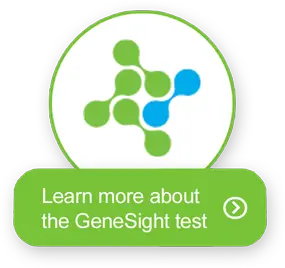You fidget during meetings and can’t quite seem to wrap up that project that’s been sitting on your desk. You have trouble remembering appointments and are known for being impulsive.
While everyone has attention lapses now and then, you may wonder if there is a deeper issue. For some adults, this behavior may be symptomatic of an underlying cause: attention-deficit/hyperactivity disorder (ADHD).
Adult ADHD may impact multiple aspects of everyday life. If the condition remains undiagnosed, untreated, or ineffectively treated, it can have detrimental effects on an individual’s psychological well-being and quality of life.
The Mayo Clinic writes that adult ADHD “is a mental health disorder that includes a combination of persistent problems, such as difficulty paying attention, hyperactivity and impulsive behavior. Adult ADHD can lead to unstable relationships, poor work or school performance, low self-esteem, and other problems.”
Adults who have ADHD may have trouble focusing and getting organized.
Adults with the disorder often struggle with “…the so-called executive function skills — planning, organizing, time management — basically, skills needed for ‘adulting,’” Dr. Lidia Zylowska, a psychiatrist at the University of Minnesota Medical School and author of “The Mindfulness Prescription for Adult ADHD” told The New York Times.
“When adults ignore tasks that require these skills, it can create chaos,” according to The New York Times article. “Bills pile up; lateness at work can lead to being fired; health appointments are delayed or neglected; accidents happen.”
Many people may think of ADHD as affecting children. However, more than four percent of adults in the U.S. have ADHD, according to an article published in the American Journal of Psychiatry.
Adult ADHD
Though the terms ADHD and ADD (attention deficit disorder) are often used interchangeably, the American Psychiatric Association redefined the terms in 1987 with ADHD known as the general term for the disorder. However, some clinicians may still use ADD to colloquially describe a subset of ADHD in which the problem mainly appears as inattention rather than hyperactivity but ADD is no longer a medical diagnosis of its own.
Those who receive an ADHD diagnosis may experience the inattentive type (ADD), the hyperactive type, or a combination of the two.
ADHD symptoms in adults
According to the Mayo Clinic, adult ADHD symptoms may include:
- “Impulsiveness
- Disorganization and problems prioritizing
- Poor time management skills
- Problems focusing on a task
- Trouble multitasking
- Excessive activity or restlessness
- Poor planning
- Low frustration tolerance
- Frequent mood swings
- Problems following through and completing tasks
- Hot temper
- Trouble coping with stress”
While any member of the general population might exhibit these traits, they are typically more pronounced in people with ADHD. An article published in the Journal of Clinical Psychiatry shows more than 90 percent of adults with ADHD have symptoms of inattention.
Diagnosing ADHD can be complicated, especially in adults where symptoms are often more subtle than those exhibited by children. Additionally, many adults may assume their symptoms are attributable to something else, such as the stress of daily life. WebMD notes potential warning signs of ADHD in adults such as: “trouble getting organized” or “trouble starting a task.”
Other behaviors and conditions – including depression, anxiety, substance use, thyroid problems, and sleep apnea – can mask the underlying cause of their problems. Yet, according to an American Journal of Psychiatry article many of these conditions exist at the same time:
- Adult patients with ADHD are approximately three times more likely to have depression.
- The prevalence of any mood disorder in adults with ADHD is about 38%.
Some women with the inattentive type of ADHD only realize they suffer from the condition when their child, is diagnosed with it, according to the Cleveland Clinic.
Tools for ADHD diagnosis and treatment
There are tools to help clinicians identify those with ADHD. According to Children and Adults with Attention Deficit/Hyperactivity Disorder (CHADD):
“During an evaluation, the clinician will try to determine the extent to which these symptoms currently apply to the adult and if they have been present in childhood. In making the diagnosis, adults should have at least five of the symptoms present. These symptoms can change over time, so adults may fit different presentations from when they were children.”
ADHD commonly coexists with other conditions where signs and symptoms may overlap. CHADD notes:
“When one or more co-existing conditions are present along with ADHD, it is essential that all are diagnosed and treated. Failure to treat co-existing conditions often leads to failure in treating the ADHD. And, crucially, when the ADHD symptoms are a secondary consequence of depression, anxiety or some other psychiatric disorder, failure to detect this can result in incorrect treatment of the individual for ADHD. Other times, treating the ADHD will eliminate the other disorder and the need to treat it independently of ADHD.”
If you suspect you may have ADHD or other mental health conditions, consider talking with your doctor about diagnosis and treatment options. If they are considering treatment with medications, the GeneSight test may help inform them about genes that may affect how you metabolize or respond to certain medications commonly used to treat depression, anxiety, ADHD, and other mental health conditions. GeneSight is intended to supplement other information considered by a doctor as part of a comprehensive medical evaluation.
Read more about ADHD and GeneSight here: https://genesight.com/genesight-now-includes-adhd-medications/
Our articles are for informational purposes only and are reviewed by our Medical Information team, which includes PharmDs, MDs, and PhDs. Do not make any changes to your current medications or dosing without consulting your healthcare provider.
The GeneSight test must be ordered by and used only in consultation with a healthcare provider who can prescribe medications. As with all genetic tests, the GeneSight test results have limitations and do not constitute medical advice. The test results are designed to be just one part of a larger, complete patient assessment, which would include proper diagnosis and consideration of your medical history, other medications you may be taking, your family history, and other factors.
If you are a healthcare provider and interested in learning more about the GeneSight test, please contact us at 855.891.9415. If you are a patient, please talk with your doctor to see if the GeneSight test may be helpful.









